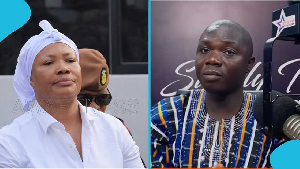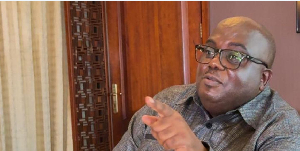Ghanaian electorate have set-out seven critical issues of concern relating to education which politicians must address in order to attract their votes in Election 2012, a survey conducted by the National Commission for Civic Education (NCCE) reveals.
The electorate considers education as number priority among a list of 14 issues that are of concern to the Ghanaian voter in Election 2012.
The survey revealed that 1,958 of a total respondent of 5,416 representing 36.1 per cent said school fees should be affordable noting that charges like sports fees, Parent Teacher Association dues and examination levy should be abolished.
The next highest proportion of respondents of 1,335 representing 24.6 per cent said the government should set up more educational institutions in mostly rural areas to provide quality education. They mentioned that new school buildings should be constructed to eradicate schools under trees.
Presenting the outcome of the survey at a roundtable for political parties which was boycotted by the leading parties; Mrs Gertrude Zakariah-Ali, NCCE Director, Research, Gender and Equity said 816 respondents representing 15.1 per cent called for the provision of educational materials such as tables and chairs, textbooks and computers for schools.
Better incentive and remuneration for teachers recorded 503 respondents representing 9.3 per cent. Some respondents stated that when teachers are paid well, they would be in a better position to teach students well and may do away with extra classes which come with exorbitant fees.
Four hundred and ninety-seven representing 9.2 per cent responses supported training more teachers. They believe that professional teachers need to be trained to provide quality education.
The extension of the school feeding programme attracted 227 respondents representing 4.2 per cent whilst those who want the free school uniform through the capitation grant to cover the whole country had 80 respondents representing 1.5 per cent.
Some respondents also felt that the government (Political Parties) should state modalities to assist private secondary schools to benefit from the Ghana Educational Trust Fund.
Mrs Zakariah-Ali noted that some respondents tasked government and politicians to address the duration of the Senior High School programme and “stop politicising it”.
According to the survey few of the electorate said government must introduce more technical and vocational courses in the educational system and uplift the quality of the technical institutions.
Responding to the issues raised in the survey, Mr Thomas N. Ward Brew, Leader of the Democratic Peoples’ Party said “Politicians are talking about free education, but they are not telling us how they are going to get money to offer the free, free, free things; the resources of the country cannot support”.
“Free education is a campaign tool, which is compounding an already complicated situation,” he said.
Professor Emmanuel Addo Obeng, former Vice Chancellor of the University of Cape Coast proposed policies that would make people who can afford to pay school fees to continue doing so in order to make it affordable for those who cannot pay.
He expressed the need for other educational packages such as bursary and scholarships to make education affordable.
Representatives of the Great Consolidated Popular Party and Progressive Peoples Party used the platform to explain their educational blue print.
Politics of Thursday, 11 October 2012
Source: GNA
Ghanaian voters want affordable school fees - NCCE
Opinions












